We Communicate For Happy Children
 ANECD Update #6
ANECD Update #6 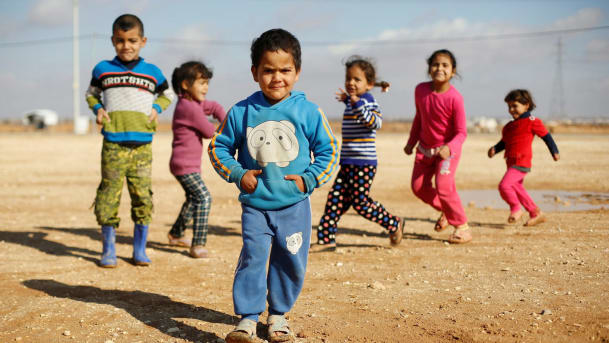
EC Issues:
Research and Training
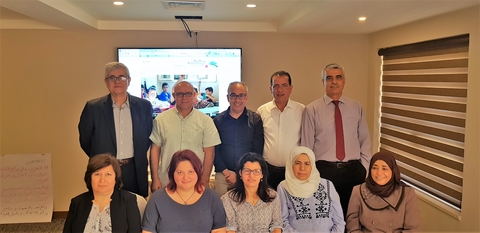
ANECD Research on Kindergarten Enrollment Rates in Arabic Countries, 2018
In May 2018, the Arab Network for Early Childhood Development initiated a research on the kindergarten enrollment in Arabic Countries. The research benefits from a grant from Regional Center for Quality and Excellence in Education (RCQE) as part of its efforts and that of UNESCO to support regional initiatives in their thrive to achieve the Sustainable Development Goals by 2030, namely SDG target 4.2. The research integrates quantitative descriptive and qualitative analytical methods. The descriptive methodology includes a questionnaire in conjunction with a comprehensive survey of kindergartens in the target countries, in order to collect needed data on the enrollment rate of children in kindergartens, children’s readiness for primary education, and schools readiness to receive children. The qualitative approach will be through a desk review of available documentation on kindergartens and early childhood education policies, with screening and identification of the most successful educational interventions and experiences in the pre-school sector in countries where the project will be implemented and globally. In addition, a series of structured interviews and focus group discussions with parents, kindergarten educators, and education policy makers in some Arab countries will be conducted as a case study. This approach will enable triangulation to reach accurate and objective data to end up with indicators of the same quality and specifications leading to well established national, regional, and global models and experiences. These will contribute to increasing the enrollment rates of children in kindergarten.
For more information, you can contact the research coordinator, Dr. Mohamed Matar or ANECD director, Dr. Ghassan Issa arcgi@mawared.org .
Partner’s resources and publications
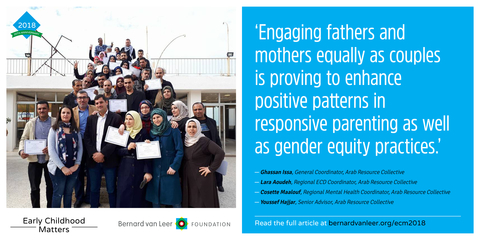
Bernard Van Leer’s “Early Childhood Matters” 2018: ARC’s program Supporting refugee, internally displaced and marginalized host community parents in the Arab region
Bernard Van Leer has launched the 2018 edition of its journal, Early Childhood Matter. The Arab Resource Collective (ARC) contributed to this issue through an article on a program supporting refugees, internally displaced, and marginalized host community parents in the Arab region: Health, Early learning, and Protection Parenting Program (HEPPP). The article starts with the repercussions of the recent upheavals in the Arab region, particularly the war in Syria, leading to millions of people taking refuge in neighboring countries or being displaced within their own countries. In this regard, the humanitarian approach prioritizes urgent needs such as shelter, food, and medical services. Beyond these, families typically have no sustained support to provide appropriate care for their young children. To address this gap, HEPPP is to be scaled up following an evaluation of a recent pilot in Lebanon and Jordan. The program had first started in Egypt and Lebanon including the Palestinian Camps between 2012 and 2014. In 2016, HEPPP was adapted to include refugees, internally displaced, and hosting communities. Between 2016 and 2018, 110 parents were trained in Lebanon and Jordan. Of these, 12 “graduate” selected parents received training on basic facilitation skills. These parents later trained 120 new participants using a parent-to-parent approach. Following the current evaluation, ARC will revisit HEPPP to identify areas for improvement in terms of program content, methodology, and methods of delivery. You can find the full article in English at the following link:

ACTION NETWORK NEWS (ECDAN)
A new issue of ECDAN’s Newsletter was published this week. The issue included:
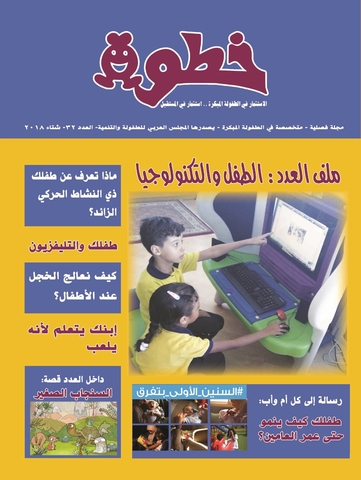
ACCD Magazine: Khutwa 32
The Arab Council for Childhood and Development published in April 2018 Issue 32 of Khutwa (Step), a magazine specialized in Early Childhood. This issue focuses on the child and technology. In addition to relevant articles, the magazine includes an illustrated story for children: “the small squirrel”.
For more information, please contact: media.accd@gmail.com
Other resources and publications
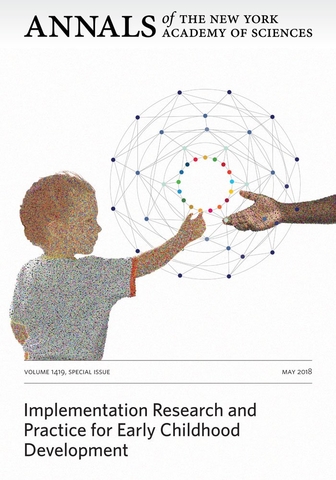
Annals of the New York Academy of Sciences Special Issue: Implementation Research and Practice for Early Childhood Development
A special issue of the Annals of the New York Academy of Sciences Special Issue in May 2018 focused on the Implementation Research and Practice for Early Childhood Development. Here is an abstract of an article by Katie Maeve Murphy from International Rescue Committee with Hirokazu Yoshikawa and Alice J. Wuermli from Global TIES for Children: Implementation research for early childhood development programming in humanitarian contexts. The authors base their article on the premise that young children living in conditions of war, disaster, and displacement are at high risk for developmental difficulties that can follow them throughout their lives. While there is robust evidence supporting the need for ECD in humanitarian settings, implementation of ECD programming remains sparse, largely due to the lack of evidence of how and why these programs can improve outcomes in humanitarian settings. In order to build the evidence base for ECD in humanitarian settings, the authors review the current state of implementation research for ECD programming (targeting children 0-8) in humanitarian settings, through a literature review and a series of key informant interviews. Drawing from existing frameworks of implementation research and the findings from their analysis, they present a framework for ECD implementation research in humanitarian settings and propose an agenda for future research. You can find the whole article on the following link:
https://nyaspubs.onlinelibrary.wiley.com/doi/full/10.1111/nyas.13691
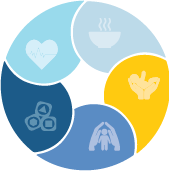
Partner’s News
New Webinar Series Explores What, Why, and How ECD Interventions Work in Real-World Settings
The Early Childhood Development Action Network and the National Institute for Early Education Research announce a webinar series exploring implementation research and practice for early childhood development, based on the recent Annals of The New York Academy of Sciences Special Issue.
First Webinar: “Why does implementation evidence matter for ECD?”
Date: Wednesday, August 1, 2018
Time: 9 a.m. Eastern
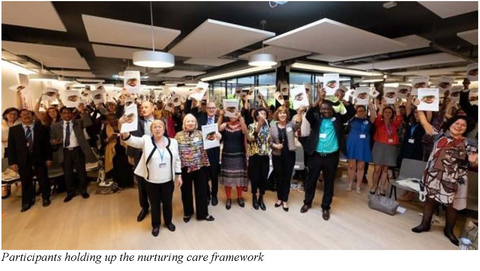
The World Health Organization, UNICEF, and the World Bank Group, in collaboration with the Partnership for Maternal, Newborn & Child Health, and the Early Childhood Development Action Network launched the Nurturing Care Framework for Early Childhood Development during the 71st World Health Assembly, on 23 May 2018. The event was led by speakers who shared reflections on the science, the imperative to act, and the progress already underway in countries to support nurturing care. The session ended by participants taking a moment to reflect on what commitments they could make to promote Nurturing Care and how the partnerships can help them succeed. More on the website: www.nurturing-care.org
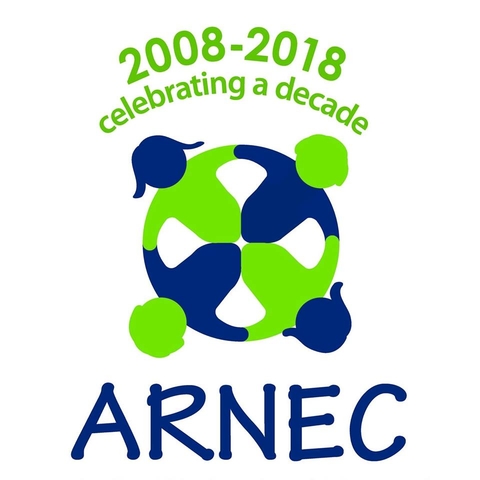
ARNEC Regional ECD Conference, June 2018
Asia-Pacific Regional Network for Early Childhood (ARNEC) held a regional Early Childhood Development Conference in Nepal in June 2018 entitled “Towards achieving the Sustainable Development Goals: What is a successful multisectoral approach to ECD?” More than 700 participants from different countries and sectors attended the conference: governmental and non-governmental organizations, academia, practitioners, and UN agencies. The conference was also held jointly with the third High-Level Policy Forum on ECCE led by UNESCO and attended by Ministers and Head of Delegations. The conference adopted the theme of “multisectoral approach to ECD” following the domains of the nurturing care framework. Keynote speakers were Dr. Aisha Yousafzai and Dr. Pia Britto plus sub-theme speakers who presented on each of the four sub-themes: health and nutrition, early learning, responsive caregiving, safety and security. Pia also presented the nurturing care framework.
For more information on the Nepal Conference and on ARNEC: http://www.arnec.net/
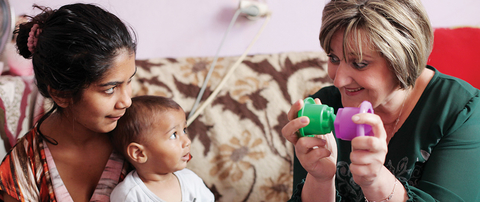
ISSA webinar on NCF, June 2018
The International Step by Step Association (ISSA) organized a webinar on the Nurturing Care Framework for Early Childhood Development on June 29, 2018. The webinar objective was to discuss how partnerships between civil society and policymakers could put young children in the spotlight, and the webinar concentrated on Europe and Central Asia. You can find the recording of the webinar and relevant resources through the following link:
https://www.issa.nl/nurturing_care_framework
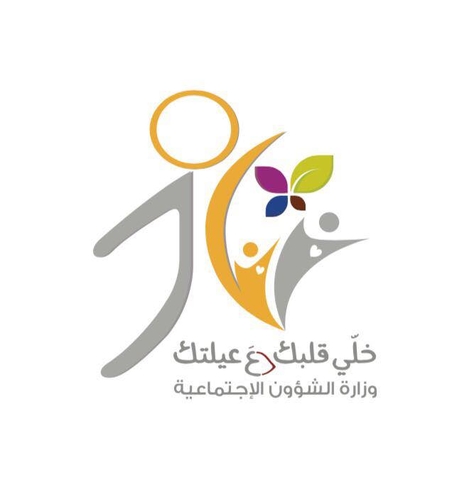
Child Rights Report in Lebanon, March 2018
The Ministry of Social Affairs / Higher Council for Childhood in Lebanon released Lebanon combined fourth and fifth Periodic Reports including the concluding Observations of the Committee on the Rights of the Child Concluding Observations in March 2018. The event was attended by Governmental and Non-Governmental Organizations, United Nations Agencies, Academia, and Unions that had all contributed in relevant data and information.
More on the Ministry Website: http://socialaffairs.gov.lb/en/msadefault.aspx?parm=10
Other News
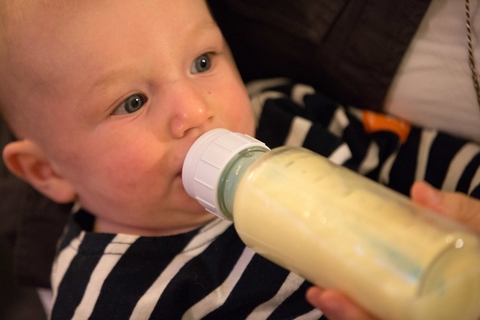
An article in July 2018 by Andrew Jacobs in the New York Times revealed that a resolution to encourage breast-feeding was expected to be approved quickly and easily by the hundreds of government delegates who gathered last spring in Geneva for the World Health Assembly. Based on decades of research, the resolution says that mother’s milk is healthiest for children, and countries should strive to limit the inaccurate or misleading marketing of breast milk substitutes. However, the United States delegation, embracing the interests of infant formula manufacturers, upended the deliberations. In the end, despite few threats to some delegation, the Americans’ efforts were mostly unsuccessful. It was noted that the intensity of Trump administration opposition to the breast-feeding resolution stunned public health officials and foreign diplomats who described it as a marked contrast to the Obama’s administration, which largely supported WHO longstanding policy of encouraging breast-feeding.
You can read the whole article at the following link:
Job Opportunities
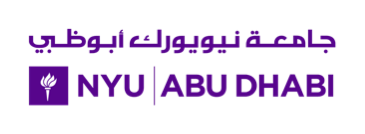
Sesame Seeds Research Associate Position, July 2018
The Global TIES for Children (Transforming, Intervention Effectiveness, and Scale) Center in the Research Institute at New York University Abu Dhabi seeks to appoint two Research Associates starting September 2018 on the Sesame Seeds Project. The researchers will work to fulfill important evaluation roles in the Sesame Workshop and International Rescue Committee project to provide ECD home, center, and mass media programming for Syrian refugee families in the Middle East. The successful applicant will provide research and project management support to achieve the mandate of Project. More specifically, the incumbent will be responsible for the following:
The link to apply is the following: https://apply.interfolio.com/51659
